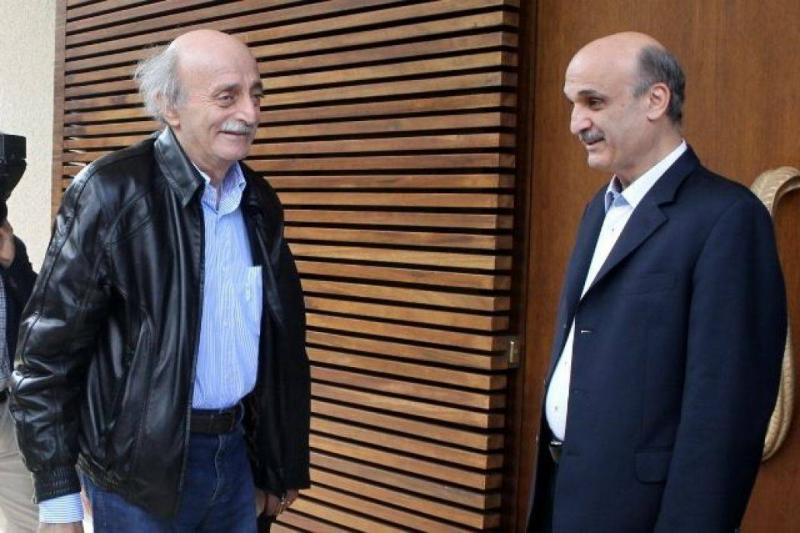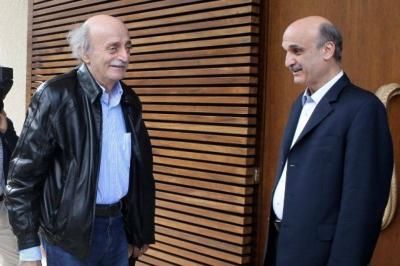There is no chemistry between Samir Geagea and Walid Jumblatt. In fact, there is little chemistry between Walid Jumblatt and most Lebanese leaders, except for "the Master" Nabih Berri, the safety valve. The relationship between the two has fluctuated over periods, particularly during the assassination era, the closure of the parliament by Berri ahead of the presidential elections, and the establishment of the international tribunal. Yet, the connection between the two leaders regained some of its former strength without reaching the level of a political alliance, nor is it likely to do so. Jumblatt's personal relationship with Geagea has not ascended to the excellent level of cooperation between their parties, their constituencies, and the deputies of both blocs.
On every occasion, Jumblatt highlights the differences between himself and the "Resident of Maarab" and does not hesitate to belittle Geagea's proposals and political, especially presidential, choices. Meanwhile, Geagea is careful to avoid responding to Jumblatt's sporadic jabs for reasons related to protecting the region from any harm or tension. Perhaps the central point that unites the two former pillars of March 14, before Jumblatt temporarily shifted toward moderation, is the reconciliation of the mountain and the interests of its people, which is above all temporary considerations.
The arrest of Bishop Moussa al-Hajj was approached differently by the leaders of the allied parties. Dr. Samir Geagea was quick to issue a firm statement denouncing what happened at the Naqoura crossing involving a patriarchal aide and called for the Higher Judicial Council to investigate Judge Fadi Akiki. In contrast, Walid Jumblatt was quick to tweet his skepticism, observing that "a calm approach is better than this noise, and respect for institutions during this difficult time is paramount," while announcing his "rejection of Israeli exploitation of the status of religious figures in attempts to smuggle money for political purposes."
In response to Jumblatt's tweet, "the wise" Fares Sayyid replied precisely, while "the wise" Samir Geagea did not respond directly but escalated his stance against Akiki, calling him a "traitor." A sharp description with its reasons. Jumblatt remains vigilant. In "The Dialogue of the Stage," he told journalist Rola Haddad that "Geagea has no right to describe Judge Akiki as a traitor." Could Jumblatt not have expressed this more smoothly and clearly stated, "I do not share Geagea's view in describing Judge Akiki, who is known for his integrity and clarity of conscience..."?
This time, Geagea abandoned his reserved manner and addressed Jumblatt directly through MP Strida Geagea in a high-pitched statement. Jumblatt's reaction can be likened to that of a chemist as in Paulo Coelho or as a profound scholar in rhetoric, stating, "At the moment a reasonable person enters a debate of fanaticism or ignorance, they lose." In the midst of this turmoil, there is an important strategic question: Who initiated the backlash? The question is directed towards the wise and the discerning.




